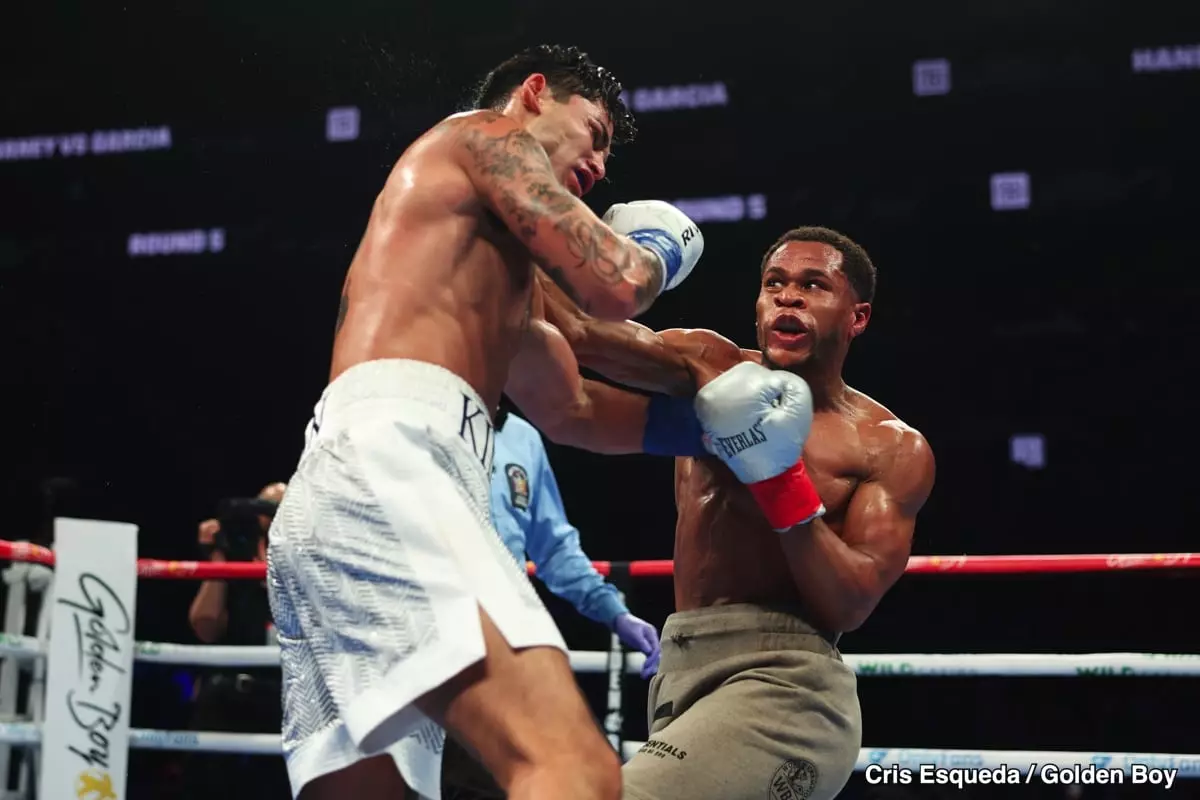BY BOXING HIT STAFF-
In the unforgiving arena of professional boxing, the aftermath of a significant loss often poses the greatest challenge for a fighter. Devin Haney’s defeat to Ryan Garcia in April has left him not only physically bruised but emotionally taxed. Promoter Eddie Hearn’s advice for Haney to seek a “tune-up” fight at a catchweight between 140 and 147 pounds reflects a broader strategy for recovery — a chance for Haney to regain his confidence and establish a foothold before potentially facing tougher opponents.
Haney’s emotions were laid bare in a recent interview, where he seemed on the verge of tears, clearly affected by the outcome against Garcia. The psychological toll that boxing can take is often underestimated. For an athlete who prides themselves on their performance, the feeling of inadequacy can be overwhelming. Hearn has recognized that such a setback requires more than just physical rehabilitation; it necessitates a psychological reset. A hasty return against formidable opponents could amplify these struggles, making Hearn’s recommendation for a softer comeback fight prudent, not just for Haney’s physical safety but also for his mental well-being.
One notable aspect of Hearn’s advice centers around the IBF light welterweight champion Liam Paro, whom Hearn ruled out as a next opponent for Haney. The restrictions imposed by the IBF’s 10-pound rehydration limit pose a significant barrier for Haney, who has struggled to meet these weight standards in prior fights. This clearly indicates a broader challenge as Haney begins to contemplate a transition into the welterweight division, where he would be competing against opponents who may well possess more power than he does. The danger of stepping into the ring against well-rounded fighters, especially without having fully recuperated from prior hardships, cannot be overlooked.
The key to rebuilding Haney’s career lies in selecting the right opponent for his return to the canvas. Hearn emphasizes the importance of an “easy fight”—a term that may seem somewhat subjective in the world of boxing but conveys the necessity of a favorable matchup that would allow Haney to showcase his skills without exposing him to overwhelming risk. This strategy not only provides a chance for Haney to rebuild his confidence but also allows him to refine his skills against a less intimidating competitor, setting the stage for future, more challenging bouts.
Hearn’s concerns about Haney possibly facing Garcia again before he is ready highlight an essential truth in sports: timing is everything. To throw Haney back into the ring against serious contenders without a proper warm-up could spell disaster, potentially leading to further losses that could tarnish his reputation. The balance between eagerness and caution is paramount in boxing, as fighters like Haney navigate not just their physical conditioning but the emotional scars that linger long after the bell rings.
For Devin Haney, taking the right steps now is crucial for revitalizing a career that has previously been marked by potential and skill. It begins with finding the right opponent and building a solid foundation for the challenges that lie ahead—both inside and outside the ring.


Leave a Reply